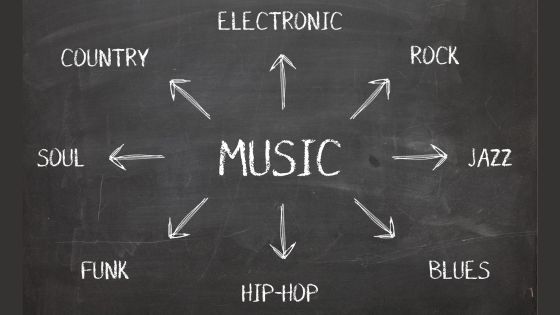Music is a universal language that has the power to connect people from all walks of life. It is a form of art that can evoke different emotions and feelings, making it an integral part of our lives. However, music is not just a monolithic entity. There are different genres of music that have unique characteristics and appeal to different audiences. In this article, we will delve into the different genres of music and understand what makes them unique.
Before we dive into the different genres of music, let’s first understand what a genre is. A genre is a category of artistic composition, characterized by similarities in form, style, or subject matter. In music, genres are defined by their rhythm, melody, harmony, and instrumentation. The following are the different genres of music:
1. Pop Music
Pop music is the most popular genre of music globally, characterized by its catchy melodies, upbeat rhythms, and simple lyrics. It has a broad appeal and is often associated with mainstream music. Pop music is usually produced with the intention of being commercially successful and is heavily influenced by electronic music.
2. Rock Music
Rock music is a genre that originated in the United States in the 1950s and has since evolved into several sub-genres. It is characterized by its heavy use of electric guitars, bass guitars, drums, and vocals. Rock music is known for its loud and energetic performances and has a massive following worldwide.
3. Hip-Hop Music
Hip-hop music is a genre that originated in African American and Latino communities in the United States in the 1970s. It is characterized by its rhythmic speech or vocal delivery, which is often accompanied by a beat or instrumental track. Hip-hop music has since evolved into several sub-genres, such as gangsta rap, conscious rap, and trap music.
4. Electronic Music
Electronic music is a genre that is produced using electronic instruments and technology. It is characterized by its heavy use of synthesizers, drum machines, and other electronic devices. Electronic music has since evolved into several sub-genres, such as techno, house, trance, and dubstep.
5. Country Music
Country music is a genre that originated in the southern United States and is characterized by its storytelling lyrics and traditional instrumentation. It is often associated with themes of heartbreak, love, and patriotism. Country music has a massive following in the United States and is gaining popularity worldwide.
6. Jazz Music
Jazz music is a genre that originated in the late 19th and early 20th centuries in the United States. It is characterized by its improvisation, swing rhythms, and use of blues notes. Jazz music has since evolved into several sub-genres, such as bebop, fusion, and smooth jazz.
7. Classical Music
Classical music is a genre that originated in Europe in the 18th century and is characterized by its complex composition and formal structure. It is often performed by orchestras and chamber ensembles and is associated with composers such as Bach, Mozart, and Beethoven.
These are just a few of the different genres of music that exist. There are many other genres, such as reggae, soul, R&B, and metal, that have their unique characteristics and appeal to different audiences. It’s essential to note that many artists blend genres to create new and exciting sounds.
Nowadays, the music industry has become increasingly diverse and global, with artists from all over the world incorporating their cultural influences into their music. For example, K-Pop (Korean pop) has gained immense popularity worldwide, and its unique blend of pop, hip-hop, and electronic music has captured the hearts of millions of fans. Similarly, Latin music, with its vibrant rhythms and infectious beats, has become a mainstream genre in recent years, with artists like Shakira, J Balvin, and Bad Bunny dominating the charts.
One interesting aspect of music genres is how they evolve and change over time. For example, hip-hop music, which originated in the United States as a form of protest against social and economic injustices, has now become a global phenomenon that encompasses various sub-genres and styles. Similarly, electronic music has evolved from its early origins in disco and funk music to incorporate a wide range of sounds and techniques.
It’s also worth noting that music genres can have a significant impact on society and culture. For example, rock music has been associated with rebellion, counterculture, and political activism, while hip-hop music has been associated with African American culture, identity, and empowerment. Similarly, country music has been associated with traditional values, patriotism, and rural life.
Conclusion
Music is a beautiful and diverse art form that has the power to connect people from all over the world. Understanding the different genres of music can help us appreciate and enjoy different styles of music and broaden our horizons. The music pie chart apple music is an excellent tool for exploring different genres and discovering new artists. So go ahead, explore the different genres of music, and discover your new favorite artist or generation.

